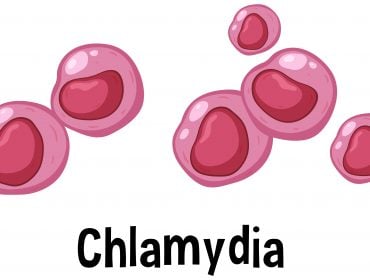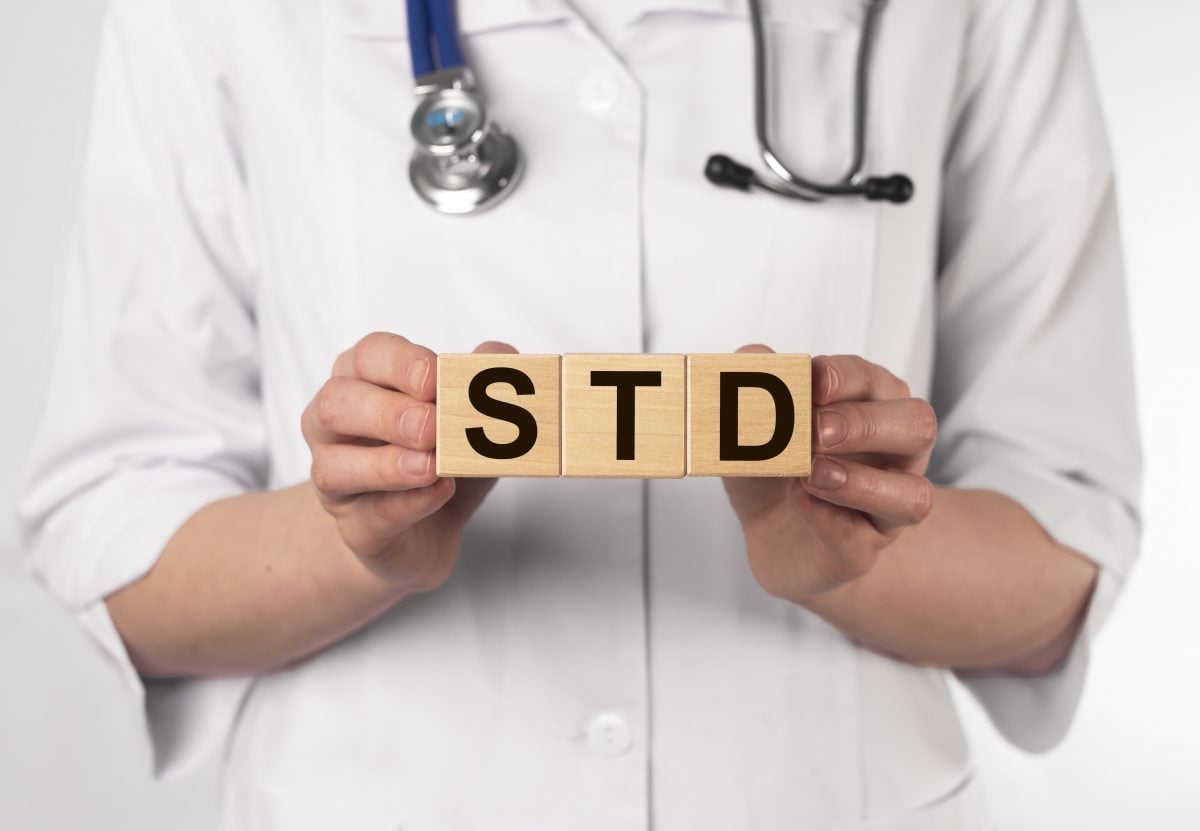Can STDs Come Back?
Sexually transmitted diseases (STDs) are infections that are transmitted through sexual contact. While STDs are often treatable, some can return even after treatment. Here’s what you need to know about the resurgence of STDs and what steps you can take to prevent them.
Which STDs Can Come Back After Treatment?
Some of the most common STDs that can come back after treatment include:
- Chlamydia
- Gonorrhea
- Syphilis
- Herpes
Each of these STDs has its own unique characteristics that contribute to the possibility of recurrence. For example, chlamydia and gonorrhea can come back if you have unprotected sex with an infected partner. Syphilis can come back at any stage of the infection, even after treatment. And while herpes can be managed with medication, the virus can still reactivate periodically. We’re about to go into some more detail and discuss…can chlamydia come back? Can gonorrhea come back? And can syphilis come back? Let’s go.
Can Chlamydia Come Back?

Yes, chlamydia can come back. In fact, it’s not uncommon for people to experience a recurrence of chlamydia after being treated. There are several reasons why this can happen.
First, it’s important to note that chlamydia is caused by bacteria that live in the genital tract. When you are infected with chlamydia, you will usually be prescribed antibiotics to clear the bacteria from your system. However, antibiotics may not completely eliminate the bacteria in some cases. This can lead to a recurrence of symptoms and the need for additional treatment.
Additionally, if you have been treated for chlamydia and then have sex with an infected partner, you can become reinfected with the bacteria. This can lead to a recurrence of symptoms and the need for additional treatment.
It’s also worth noting that some people may be more prone to recurrent chlamydia infections due to immune system issues or other factors. If you have experienced multiple recurrences of chlamydia, it’s essential to talk to your healthcare provider about additional testing and treatment options.
Overall, chlamydia can come back for various reasons, including inadequate treatment, reinfection, and immune system issues. To reduce your risk of recurrence, it’s important to practice safe sex, get tested regularly, and communicate with your sexual partners about any STDs you may have or have had in the past. So, can chlamydia come back?…yes.
Can Gonorrhea Come Back?

Yes, gonorrhea can come back after being treated. In fact, some people experience a recurrence of gonorrhea symptoms or test positive for the infection again after they have been treated. Here are some reasons why gonorrhea can come back:
- Incomplete treatment: Not completing the entire course of antibiotics prescribed for gonorrhea can leave some bacteria behind, leading to a recurrence of symptoms.
- Reinfection: If you are sexually active with a partner who is infected with gonorrhea, you could become reinfected with the bacteria after being treated.
- Antibiotic resistance: In some cases, gonorrhea bacteria can develop resistance to antibiotics, making it more challenging to eliminate the infection.
- Salvageable infections: Some people with gonorrhea can have hidden or hard-to-reach infections that may not be treated effectively by the medication provided.
It’s important to know that gonorrhea can be a persistent infection in the body. Some infected individuals may experience no symptoms (asymptomatic stds), making it difficult to know if treatment was unsuccessful.
To reduce your risk of recurrence, it’s important to take all of the medication your doctors tell you to when you are first diagnosed with gonorrhea. It would be best if you also got retested after treatment to ensure that the infection has been completely eliminated. Additionally, it’s important to practice safe sex, limit your number of sex partners, and use protection to reduce your risk of becoming infected or reinfected with gonorrhea.
Can Syphilis Come Back?

Yes, syphilis can come back after treatment in some cases. Syphilis is caused by the bacteria Treponema pallidum, and if left untreated, it can lead to severe complications. In some cases, the bacteria can remain in the body even after treatment, leading to a recurrence of symptoms.
There are several reasons why syphilis can come back, including:
- Inadequate treatment: If the entire course of antibiotics is not taken or if the treatment is not practical, syphilis can come back after some time.
- Reinfection: Exposure to the bacteria again from a sexual partner can lead to reinfection and the manifestation of symptoms.
- Immune system issues: If someone has a weakened immune system, their body may not be able to effectively eliminate the bacteria, allowing it to persist in the body.
It is important to note that syphilis has several stages, and it can come back at any stage, even after successful treatment. Additionally, individuals who have been treated and cured of syphilis can still be at risk of contracting it again if they engage in risky sexual behavior.
To reduce the risk of syphilis recurrence, seeking treatment as soon as possible after diagnosis and taking the complete course of antibiotics as prescribed is important. Additionally, practicing safe sex, limiting the number of sexual partners, and avoiding sexual contact with individuals with active syphilis infection can help prevent reinfection. Regular STD testing can also help detect the recurrence of syphilis infections. So, can syphilis come back?… Yes!
Can Herpes Come Back?
Yes, herpes can definitely come back, and this is a common occurrence. According to medical experts, the herpes simplex virus can lie dormant in the body for long periods. Still, when triggered by certain factors like illness, stress, hormonal changes, or even sunburn, it can become active again and cause a recurrence of symptoms such as blisters, sores, and itching. In fact, many people experience repeated outbreaks of herpes despite initial treatment and symptom relief. The virus stays inside your body even after symptoms go away, so managing triggers and seeking treatment when necessary is important. However, antiviral medications and self-care measures like managing stress can help prevent and treat herpes outbreaks.
Why Do STDs Come Back?
We’ve already discussed most of them, but it’s worth reviewing. There are several reasons why an STD can come back after being treated:
- Inadequate treatment: Sometimes, an STD is not completely eliminated by treatment, which can lead to a recurrence of symptoms.
- Reinfection: This happens if you have in sex with an infected partner. You can become reinfected with the same STD.
- Immune system issues: If your immune system is compromised, you may be more susceptible to STDs, and they may be more likely to come back after treatment.
How Can You Prevent STDs from Coming Back?
If you have been treated for an STD and are concerned about a recurrence, there are steps you can take to reduce your risk:
- Get retested: After treatment, getting retested is important to ensure the infection has been eliminated entirely.
- Practice safe sex: Always use condoms when engaging in sexual activity, and limit your number of sexual partners.
- Communicate with your partner: If you have been treated for an STD, discuss the infection to ensure they are also treated.
- Take care of your health: A healthy immune system can help prevent the resurgence of STDs. Practice healthy habits such as exercise and proper nutrition to strengthen your immune system.
While the resurgence of STDs can be a concern, it’s important to remember that many are treatable and preventative measures can reduce your risk. Talk to your doctor about the best ways to protect yourself from STDs and reduce your risk of recurrence.
Medically Reviewed by Kaci Durbin, MD, MBA, FACOG on April 23, 2023
Secure and Confidential
STD testing services
The fastest results possbile - available in 1 to 2 days

Tagged
Categorized As
Author: STD Check Editorial Team
At STDCheck.com, we go to great lengths to ensure quality content. We’re using our own collection of data. It is not bought or made up for “click-bait” purposes. We don’t entice traffic with cheesy graphics or raunchy headlines. Our information is to promote STD testing, educate people, let go of social stigmas, and bring awareness. We also provide a completely confidential atmosphere through private testing. When we produce an article, it is fact-based. We check it with medical advisors that approve it. Our staff consists of doctors and other medical professionals who peer review the content we make available on STDCheck.com. From all over the world, we have sourced the best and the brightest content developers, including medical professionals, marketing engineers, data scientists, content specialists, and media relations.




